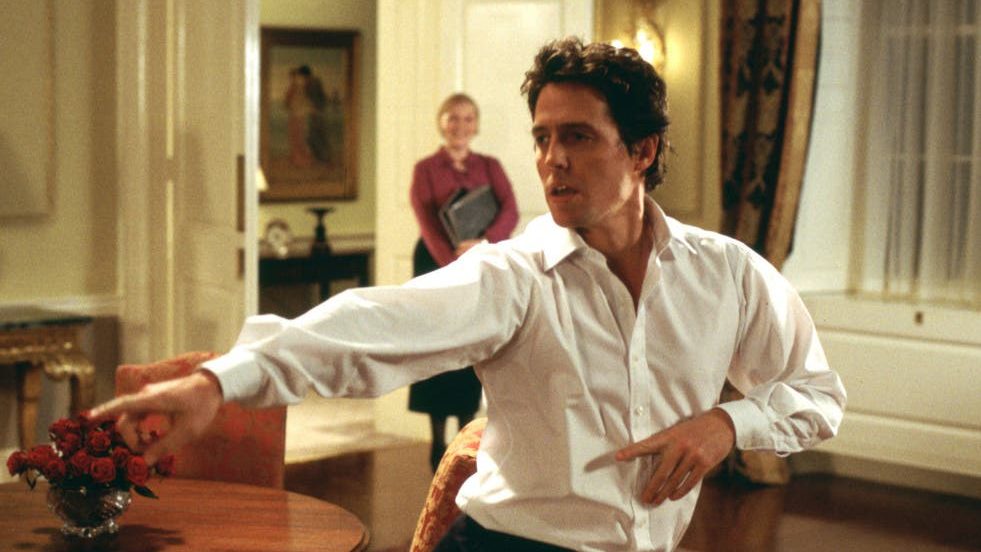For those who’ve been living under a bauble, Love Actually is a classic 2003 Christmas rom-com following multiple overlapping storylines. These range from the pure romance of Colin Firth learning Portuguese to communicate with the woman he loves, to the heart breaking moment when Emma Thompson realises that Alan Rickman bought a necklace for another woman (beastly behaviour). But we all know that the best storyline in the film is, objectively, Hugh Grant’s.
Grant plays the country’s new prime minister David but, shock horror, he’s single. Then he meets his secretary Natalie (Martine McCutheon), who charms him with some foul language. Grant is nervous and spends some time trying to work up the nerve to talk to her, eventually offering the all-too seductive prospect of having her fat-shaming ex-boyfriend killed by the SAS.
But then the American President comes to visit, and David stands up to him at a press conference – not because he steamrolls over British governmental policy at the peak of the War on Terror, but instead because he necks off with Natalie. David fires Natalie out of jealousy, but a Christmas card from her melts his heart and he goes out to get her.
The storyline is well-trodden, but it sets itself apart from the Hallmark brand of Christmas film in a few key ways.
The first is just how iconic it is. The dance scene springs to mind in particular, and it’s shareability in meme culture means that even those who haven’t seen the film will at least be aware that there is a Hugh Grant dance scene in Love Actually. I would be shocked if none of the four prime ministers the country has seen since the release of this film had recreated the dance in Downing Street. My money is on Theresa May.
The dialogue also plays an important role. It adds so much humour to the storyline, especially given its delivery by the actors. Natalie’s mum, for example said she spent ages making the octopus costume for the nativity because “eight is a lot of legs, David”. Or Grant’s pitch-perfect delivery of “Oooh, would we call her chubby?”
The relative lightness of the storyline adds to its charm. Yes, David and Natalie have a little tiff because of her mooching off with the president, but we all know that they’re made for each other. In some films, this could be sickly, but when contrasted with Thompson suppressing her tears to the tune of Joni Mitchell or trying to hold it together at the Christmas pageant, it’s just a relief to see it work out well for someone.
All these ingredients make it the perfect Christmas love story. Others have sweet endings. Liam Neeson’s 10-year-old stepson running through very questionable airport security to say goodbye to the love of his life, for example. Or the aforementioned Firth storyline, where we see people who can hardly talk to each other learn to communicate. But Grant’s story is the most iconic and well-loved for a reason. It is the best, actually.





